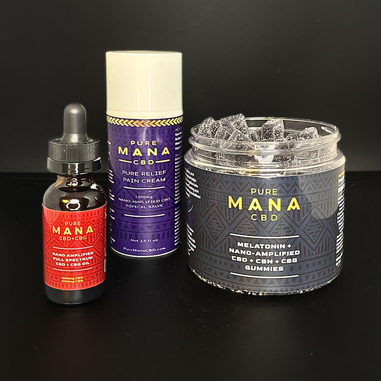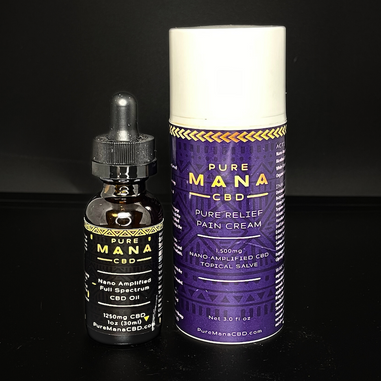CBD and Your Immune System
CBD (cannabidiol) is one of the most important medical molecules found in the cannabis plant.

Its protective properties extend across your brain, body, and central nervous system. But unlike THC, CBD isn’t psychotropic and doesn’t produce any kind of euphoric high.
CBD and its companion cannabinoids work mainly inside your Endocannabinoid System (ECS), the system that regulates homeostasis in your body. Your ECS’s job is to make sure all your most important internal processes – sleep cycle, immune system, appetite, temperature, mood, etc – don’t get too cold or too hot, but stay perfectly balanced.
Today we’re going to talk about CBD and your immune system. Does CBD have an effect on the immune system? If so, does it boost or suppress it? And can CBD protect us from viral outbreaks?
Let’s start with taking a quick bird’s-eye flight over our immune system.

IMMUNE SYSTEM
Your immune system has evolved to protect your body from harmful intruders.
Every time you get attacked by a virus, bacteria, or infection, your immune system learns how to protect you a little better. And it remembers what it learns.

Your white blood cells are at the frontlines of your immune system. You can think of them as nano-soldiers in charge of finding and destroying trespassers.
There are two kinds of white blood cells: Phagocytes and Lymphocytes.

Phagocytes
Phagocytes are one-trick ponies. They have one response to any tiny unwanted particles they find in your body: devour and digest. Phagocytes respond the same whether the enemy is a harmful bacterium, a dead cell, or a particle of dust. Neutrophils, monocytes, macrophages and mast cells are all types of phagocytes.
This non-specific immune response is called innate immunity. You can think of your phagocytes as a blunt instrument that your body picks up to bash stuff over the head when it doesn’t know what else to do.

Lymphocytes
Lymphocytes are jacks of all trades. They can figure out the best way to checkmate a virus or other enemy. And best of all, once they hit on a good strategy for defeating a specific attack, they can remember it.
This specific immune response is called adaptive immunity. Lymphocytes are the MacGyvers of your immune system. They’re constantly adapting and inventing new ways to defeat new foes.

There are two main types of Lymphocytes: B-Cells, and T-Cells. Each has a different strategy for identifying and killing invaders.
- NK (Natural Killer) cells, a type of T-cell, work mostly with tumors made of cells from your body that went rogue
- T-Cells and B-Cells are experts at identifying non-self toxins called antigens
- B-Cells can whip up giant batches of antibodies to neutralize foreign objects
- T-Cells prefer to respond by producing cell-signalers called cytokines

Cytokines
Cytokines are messengers made out of proteins. They broadcast emergency signals between your cells to help direct your immune response and call for the right kind of backup, depending on the situation. They use a number of different tools.
They can elevate your body’s temperature to try to burn out trespassers. They can encourage inflammation to increase fluid flow and remove damaged tissue. They can promote cell growth, change your blood pressure, and many other things.
But sometimes cytokines can be too enthusiastic about their job.
Cytokines are basically the Jim Carrey of the body. They’re good at what they do, but they’re prone to overacting. This can lead to complications like the dreaded cytokine storm.

THE CYTOKINE STORM
In the current COVID-19 outbreak, experts project that the most serious cases will be elderly patients with weak immune systems. In spite of this, 20% of the people who have been hospitalized so far in the USA are in their 20s, 30s, and early 40s.
When we get infected with a virus, many of the symptoms we see don’t actually come from the virus. They come from an overreaction of our own immune system response. Specifically, those pesky cytokines.
It’s hard to predict whose immune system will go crazy and overreact to this or any other virus. Just like height and eye color, immune response is basically a genetic lottery. Everyone gets exposed to cat hair and pollen, but only a few develop allergies and asthma.
This kind of overenthusiastic immune system response is called a cytokine storm. Besides the COVID-19 crisis, these storms have also been seen in many other viral outbreaks including SARS and MERS.
Among the many wonderful things cytokines can do (listed above), they are also able to stimulate the production of more cytokines. Under normal circumstances, your body can keep this feedback loop in check. But when too many immune cells get activated in the same place by a new invader, your body may lose control.

A cytokine storm can look like many things, depending on the case. It can cause a sore throat, stuffy nose, high fever, high blood pressure, or even low blood pressure. In your lungs, a cytokine storm can cause fluids to accumulate and eventually block your airways. This is what happens in patients with COVID-19.
Viral outbreaks tend to cause complications when your immune system is too weak. But they can also do some serious damage if your immune system is too strong.
CBD: A TWO-WAY STREET
Antiviral medications boost your immune system. Autoimmune medications suppress it.
Neither of these treatments can change what they do according to what your body needs. You either turn it up, or you turn it down. You can’t do both. This is why their side effects can be so nasty.
CBD isn’t one-directional. Its effects seem to change depending on what your system needs.
Studies have shown, for instance, that:
- In a healthy cell with low inflammation, CBD won’t affect the inflammation.
- In a healthy cell with high inflammation, CBD seems to desensitize the surrounding nerve endings to bring the inflammation under control.
- In certain cancerous cells, CBD can even increase the inflammation to help trigger cell death.

CBD VS THE STORM
CBD has been shown to have a strong regulatory effect on the production of certain cytokines.
Two of the most important cytokines that CBD regulates are called IL-2 and interferon. Your immune system uses these to help identify harmful foreign intruders and fight infections.
CBD can either enhance or inhibit IL-2 and interferon production, depending on what your body needs.
You may remember T-Cells, one of the tiny soldiers in your immune system. The acute phase of a coronavirus infection seems to trigger a massive reduction in the T-Cells in your blood.

When your T-Cell count recovers a bit, your immune system tends to compensate by activating armies of T-Cells that quickly migrate to the site of the infection. There, they begin enthusiastically creating way too many antiviral cytokines.
Here’s where it gets interesting. When T-Cell activity gets too strong, the same CBD molecules that boosted cytokine production during low T-Cells periods actually begin to suppress the production of IL-2 and interferon.
CBD actually changes its effect in response to how weak or strong your immune system is. It's like a regulator, turning the system up or down, depending on the need.

CONCLUSION
Your immune system is one of the systems that your Endocannabinoid System helps to regulate. Your ECS uses CBD and other cannabinoids to make sure your immunoresponse is balanced – not too strict and not too lax.
Specifically, your Endocannabinoid System watches over your T-Cell count and your production of cytokines. When your T-Cells are low, your ECS can use CBD molecules to tell your body to produce more cytokines. When your T-Cell activity gets too strong, the same CBD molecules can tell your body to cut cytokine production.
Meaning, CBD helps your body have the correct immune response. It can tell your immune system what to do and when to do it so it can protect you from viruses, bacteria, and things that make you sick./p>







